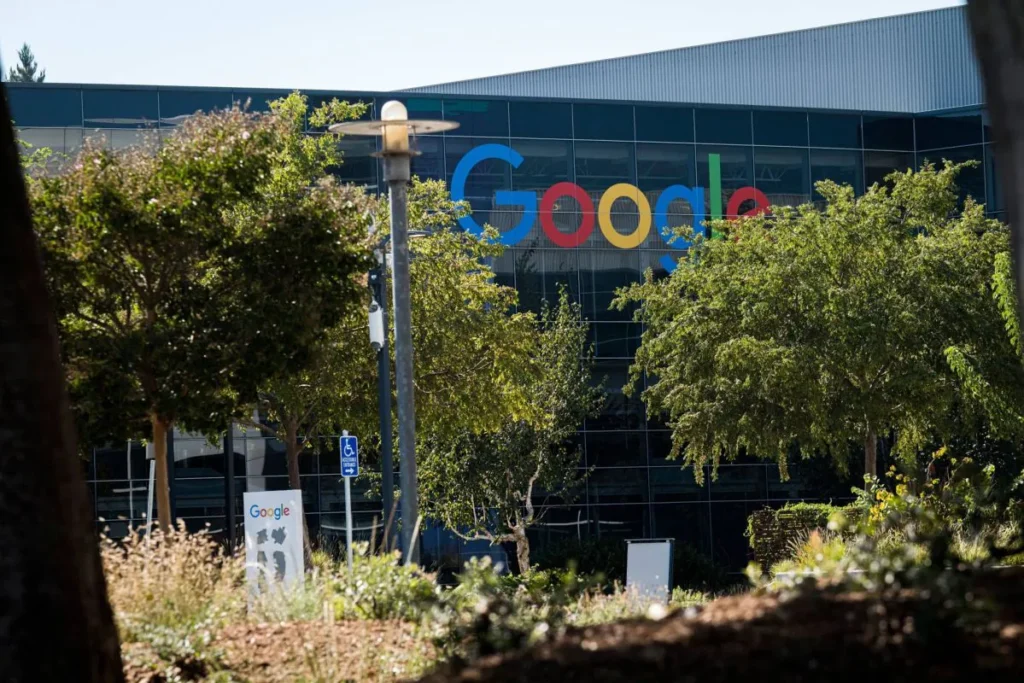In the digital era, where information access is instantaneous and search engines have become the gateway to the internet, the dominance of a single player often draws scrutiny. Google, the world’s largest and most widely used search engine, is once again under the microscope. According to recent arguments presented by the US Department of Justice (DOJ), Google has paid billions of dollars to tech giants like Apple, Samsung, and leading telecom carriers to ensure it remains the default search engine on smartphones, browsers, and connected devices. This alleged practice has been framed as an attempt to stifle competition and maintain Google’s overwhelming market dominance.
The issue was raised during a hearing before Judge Amit Mehta in Washington, where DOJ attorney Kenneth Dintzer argued that Google’s contracts represent a deliberate strategy of “buying default exclusivity.” These agreements, according to the DOJ, are at the heart of a landmark antitrust lawsuit aimed at dismantling Google’s long-standing control over internet search.
The story, reported by Bloomberg, outlines how such deals deny competitors the opportunity to gather critical user data—an asset widely acknowledged as the lifeblood of any search engine. Data not only helps refine algorithms but also drives targeted advertising revenue, a sector where Google already holds a commanding lead. For many regulators and lawmakers, these practices represent the very essence of anti-competitive behavior.
The Allegations: Billions Paid for Default Status
Google’s financial reach and scale have long allowed it to forge exclusive partnerships with hardware makers and carriers. The DOJ’s allegations point specifically to deals with Apple, Samsung, Motorola, AT&T, Verizon, and T-Mobile. In effect, these agreements guarantee that when a consumer opens a new phone or browser in the US, Google Search appears as the default engine.
While users are free to change their default search engine manually, behavioral studies consistently demonstrate that defaults wield immense power. The vast majority of users do not alter preset options, meaning that being “the default” confers a significant competitive advantage. In this context, the DOJ argues, Google’s billions are not just an investment in brand placement but a mechanism to systematically shut out potential challengers like Microsoft’s Bing, DuckDuckGo, or smaller privacy-focused search engines.
Kenneth Dintzer underscored this point by suggesting that Google’s strategy denies rivals the scale they need to compete effectively. Search engines improve with data: more queries generate better machine learning insights, which in turn enhance results and user experience. By monopolizing access to US users through default status, Google not only entrenches its dominance but also ensures that alternatives remain perpetually marginalized.
Google’s Defense: Long-Term Contracts and Industry Necessity
Google, for its part, has denied wrongdoing. Its legal representatives argue that many of these contracts have existed since the 2000s and reflect standard business practices rather than anti-competitive scheming. They stress that default placement is not forced upon companies but negotiated through mutually beneficial arrangements.
For example, Mozilla, the non-profit behind the Firefox browser, relies heavily on Google’s financial support through default search agreements. Without such funding, Google argues, Mozilla would struggle to sustain its free services. Similarly, Apple and other smartphone makers benefit from substantial revenue-sharing arrangements when Google is the default search engine on their devices.
From Google’s perspective, these partnerships reflect a win-win ecosystem rather than a monopolistic chokehold. Moreover, the company highlights that users retain the ability to change their search engine preferences, meaning no one is locked into using Google.
The Larger Context: Antitrust Scrutiny in the Tech Sector
This lawsuit represents one of the most significant challenges Google has faced in its 25-year history. It is also part of a broader wave of regulatory scrutiny directed at Big Tech companies, particularly in the United States and Europe.
For years, regulators have expressed concerns that companies like Google, Amazon, Apple, and Meta (formerly Facebook) leverage their market dominance in ways that undermine fair competition. In Google’s case, search and advertising form the backbone of its empire, generating the vast majority of its annual revenue. Critics argue that Google’s overwhelming market share—estimated at over 90% of the global search market—gives it unparalleled power to shape consumer behavior, direct online traffic, and control the digital advertising ecosystem.
The DOJ’s lawsuit aims to prove that Google deliberately used its financial resources to lock in this dominance. Should the case succeed, it could pave the way for significant reforms in how tech companies negotiate defaults and handle user data.
Why Defaults Matter: Behavioral Economics and Consumer Habits
The debate over Google’s contracts hinges on one crucial insight: default options influence consumer choices far more than most realize. Numerous studies in behavioral economics show that when given a preset option, most users stick with it, whether it’s search engines, insurance plans, or even organ donation status.
Google’s rivals know this well. Microsoft, for instance, has attempted to push Bing through integration with Windows and the Edge browser, but its success has been limited compared to Google’s entrenched position. Smaller search engines like DuckDuckGo, which markets itself as a privacy-first alternative, face an even steeper uphill battle without access to mainstream device defaults.
The DOJ argues that Google’s exploitation of this behavioral tendency constitutes an unfair barrier to entry. By paying billions to maintain default status, Google ensures that its competitors struggle to scale and innovate, ultimately reducing consumer choice in the marketplace.
The Stakes for Google and the Industry
The DOJ’s case is not merely about financial penalties. If regulators succeed, they could force Google to unwind some of its contracts, potentially reshaping the entire search engine landscape. Such a move could create unprecedented opportunities for alternative providers, particularly those offering niche features such as enhanced privacy, transparency, or localized search results.
For Google, however, the stakes are enormous. Search advertising accounts for a massive portion of its revenue—estimated at over $160 billion annually. Any disruption to its default placements could erode its advertising dominance and weaken its ability to fund other ventures, including YouTube, Android, and its cloud business.
At the same time, the case could serve as a precedent for future antitrust actions against other tech giants. If courts side with the DOJ, regulators may feel emboldened to pursue similar cases against Apple’s App Store practices, Amazon’s marketplace policies, or Meta’s data collection strategies.
Global Implications: Beyond the United States
While the DOJ’s lawsuit is focused on US markets, the implications are global. Regulators in the European Union, India, and Australia have already taken steps to curtail Google’s market power. The EU, for instance, has fined Google billions of euros for antitrust violations related to Android and shopping search practices. India’s competition watchdog has also levied penalties, arguing that Google’s dominance in search and app distribution stifles local innovation.
If the US successfully challenges Google’s exclusivity deals, it could add momentum to these international efforts. Conversely, a failure to curb Google’s practices might embolden the company to maintain or even expand its reliance on default-based strategies worldwide.
The Road Ahead: What Happens Next
Thursday’s hearing marked the first significant step in a legal process that could last years. The trial itself is expected to begin next year, with testimony from industry experts, rival companies, and possibly even executives from Apple, Samsung, and major telecom providers.
The outcome is uncertain. Antitrust law in the US has historically focused on consumer harm measured by price increases. Since Google’s services are free to users, proving harm requires a more nuanced argument—that Google’s behavior harms competition, stifles innovation, and limits consumer choice. This evolving interpretation of antitrust law will be central to the case and could redefine how regulators approach Big Tech in the future.
Conclusion: A Battle for the Internet’s Future
The DOJ’s antitrust lawsuit against Google is not just about contracts or search engines. It is about the fundamental structure of the digital economy and the balance of power between consumers, corporations, and regulators. Google insists its deals are legitimate business arrangements that support innovation and provide free services to billions of people. Regulators counter that these same deals represent a deliberate and illegal effort to monopolize the most critical entry point to the internet.
As the case moves forward, it will test not only the strength of US antitrust law but also society’s broader willingness to rein in the unchecked power of tech giants. For now, one thing is clear: the outcome will shape the digital landscape for decades to come, influencing how people search, how companies compete, and how governments safeguard fair competition in the age of information.

